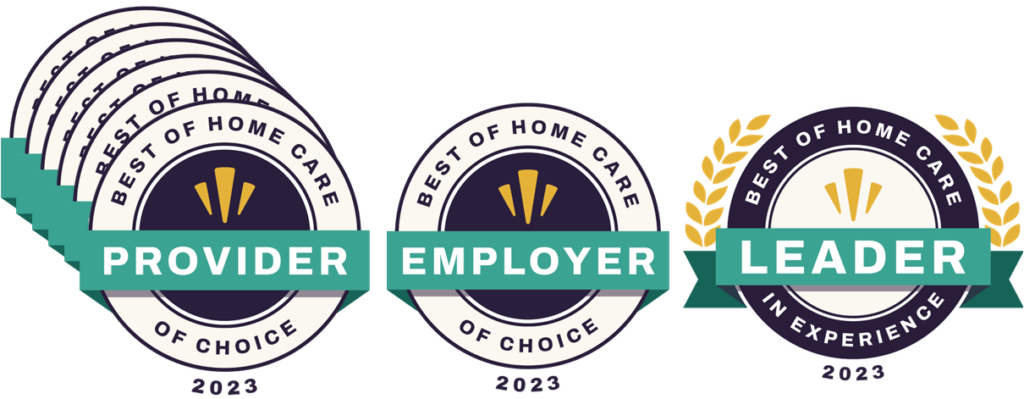Do you have a senior loved one who is still living at home on their own? Perhaps an aging parent? You may wonder if they are eating right, and eating enough – especially if you can’t be there all the time to monitor what goes into their mouth. We all know it’s vital to adopt a well-balanced diet, as it’s a large component of staying healthy as we age. But saying and doing are two different things.
Eating well will help your loved one maintain a healthy weight and stay energized, while also lowering their risk of developing chronic health conditions, such as diabetes and heart disease.
Even though you may be offering care for your elderly loved one, you just can’t be expected to be there all the time, which means you don’t really know if they are eating properly in your absence. Hiring trusted homecare services will go a long way toward giving you peace of mind, as caregivers can prepare and serve healthy meals to them.
1. Develop a Healthy Eating Plan
A healthy eating plan should include fruits, vegetables, whole grains, low-fat dairy or fat-free dairy, along with lean meat, poultry, fish, eggs, beans, and nuts. A good diet will be low in saturated and trans fats, salt and added sugars. Follow these guidelines according to the Academy of Nutrition and Dietetics.
- Eat only polyunsaturated and monounsaturated fats, switching from solid fats to oils when preparing food.
- Eat plenty of fruits and vegetables, whether fresh, frozen or canned. Reach for dark green vegetables such as broccoli and leafy greens, as well as orange vegetables like sweet potatoes and carrots.
- Eat three ounces of whole-grain cereals, crackers, breads, pasta or rice a day, opting for whole grains when possible.
- Get lots of protein, not just from meat but from fish, beans and peas as well.
- Have 3 servings of fat-free dairy or low-fat dairy fortified with vitamin D for healthy bones. Good choices include milk, yogurt or cheese.
2. Limit High-Calorie Foods
Limit foods that are low in nutrients yet high in calories, saving desserts and sweetened beverages for occasional treats. Make sure this is approved by their doctor.
3. Stay Hydrated
Seniors don’t recognize thirst as well as younger people do, which makes it easy to become dehydrated. Make sure they are drinking fluids on a regular basis, at least eight 8-ounce glasses of water daily. If they want something more, give them low-sugar juice, tea, soup, or water-rich fruits and vegetables to get the hydration they crave.
4. Get Plenty of Physical Activity
It’s vital to balance physical activity and a healthy diet with a good fitness routine. Seniors should get physical activity for least a half hour a day. It’s OK to break this up into three 10-minute sessions. Don’t worry about it being anything fancy: a walk around the block is perfectly fine.
Contact Divine Home Care Services
For more tips or to learn about our in-home care services, including meal prep, please contact us in Texas today.


